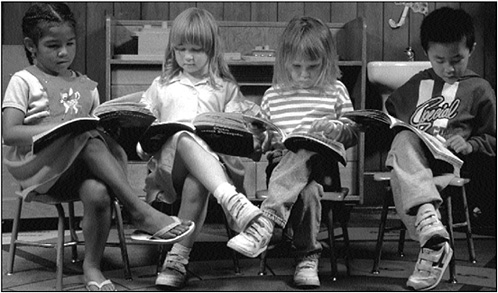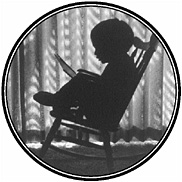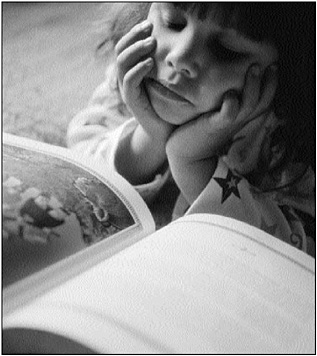NATIONAL ACADEMY PRESS
2101 Constitution Avenue, NW Washington, DC 20418
NOTICE: The project that is the subject of this report was approved by the Governing Board of the National Research Council, whose members are drawn from the councils of the National Academy of Sciences, the National Academy of Engineering, and the Institute of Medicine. The members of the committee responsible for the report were chosen for their special competences and with regard for appropriate balance.
The study was supported by Contract/Grant No. H023S50001 between the National Academy of Sciences and the U.S. Department of Education. Any opinions, findings, conclusions, or recommendations expressed in this publication are those of the author(s) and do not necessarily reflect the views of the organizations or agencies that provided support for this project.
Committee on the Prevention of Reading Difficulties in Young Children
CATHERINE SNOW (Chair),
Graduate School of Education, Harvard University;
MARILYN JAGER ADAMS,
Bolt, Beranek, and Newman, Inc., Cambridge, Massachusetts;
BARBARA T. BOWMAN,
Erikson Institute, Chicago, Illinois;
BARBARA FOORMAN,
Department of Pediatrics, University of Texas, and Houston Medical School;
DOROTHY FOWLER,
Fairfax County Public Schools, Annandale, Virginia;
CLAUDE N. GOLDENBERG,
Department of Teacher Education, California State University, Long Beach;
EDWARD J. KAME’ENUI*,
College of Education, University of Oregon, Eugene;
WILLIAM LABOV,
Department of Linguistics and Psychology, University of Pennsylvania;
RICHARD K. OLSON,
Department of Psychology, University of Colorado, Boulder;
ANNEMARIE SULLIVAN PALINCSAR,
School of Education, University of Michigan, Ann Arbor;
CHARLES A. PERFETTI,
Department of Psychology, University of Pittsburgh;
HOLLIS S. SCARBOROUGH,
Brooklyn College, City University of New York, and Haskins Laboratories, New Haven, Connecticut;
SALLY SHAYWITZ,
Department of Pediatrics, Yale University;
KEITH STANOVICH,
Ontario Institute for Studies in Education, University of Toronto;
DOROTHY STRICKLAND,
Graduate School of Education, Rutgers University;
SAM STRINGFIELD,
Center for the Social Organization of Schools, Johns Hopkins University;
ELIZABETH SULZBY,
School of Education, University of Michigan, Ann Arbor;
M. SUSAN BURNS, Study Director;
PEG GRIFFIN, Research Associate;
SHARON VANDIVERE, Project Assistant
Library of Congress Cataloging-in-Publication Data
Starting out right : a guide to promoting children's reading success / M. Susan Burns, Peg Griffin, and Catherine E. Snow, editors ; Committee on the Prevention of Reading Difficulties in Young Children, Commission on Behavioral and Social Sciences and Education, National Research Council.
p. cm.
Includes bibliographical references and index.
ISBN 0-309-06410-4 (pbk.)
1. Reading (Early childhood)—United States. 2. Reading disability—United States. I. Burns, M. Susan (Marie Susan). II. Griffin, Peg. III. Snow, Catherine E. IV. Committee on the Prevention of Reading Difficulties in Young Children.
LB1139.5.R43 S83 1998
372.1—ddc21
98-25492
Additional copies of this report are available from
National Academy Press,
2101 Constitution Avenue, NW, Lockbox 285, Washington, DC 20055. Call (800) 624-6242 or (202) 334-3313 (in the Washington metropolitan area). This report is also available online at http://www.nap.edu
Printed in the United States of America
Copyright 1999 by the National Academy of Sciences. All rights reserved.
Book design by Francesca Moghari (National Academy Press).
Foreword
Madeline soon ate and drank.
On her bed there was a crank,
and a crack on the ceiling had the habit
of sometimes looking like a rabbit.*
How easy it is for us adults to forget the magic of our own childhood—the freshness of each discovery, the joy at awakening to each new day. And yet the human spirit thrives on the stimulation that comes from discovering new things, and each of us is refreshed by an active imagination that truly exercises the mind. We began this brief foreword with a quotation from a well-known children’s book to help transport the reader, for just one fleeting moment, into the mind of a young child. As he or she reads or is being read to, the series of vivid images that accompanies a good story will carry a child into unfamiliar worlds—leading the child to make new mental connections that will enrich the experience of many subsequent actual events.
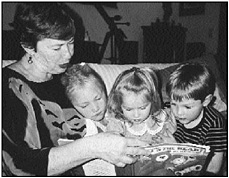
Yet today we are seeing an increasing number of students who are not proficient readers, as well as adults who cannot read well, even though they have been to school. In fact, surveys tell us that 4 in 10 children experience literacy problems. It is for this reason that the National Research Council of the National Academies of Sciences and Engineering, with which we are both involved, set out to identify the specific skills and experiences that children need to become fluent readers. A select committee composed of educators, linguists, pediatricians, and psychologists has carefully reviewed the relevant scientific literature about how children
become successful readers, and their findings are reflected in this book, which is based on the groundbreaking study Preventing Reading Difficulties in Young Children.
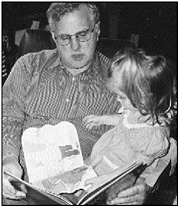
In our society, reading is essential for creating a healthy mind and for building the capacity needed for a lifetime of learning. It is therefore our hope that this book—and others like it—will be prescribed by pediatricians, as part of their responsibility to help parents raise a healthy child. Many parents who read this book may be surprised to learn of research suggesting that infants only a few months old should be read to, as part of the preparation they will need much later for reading—or that reciting nursery rhymes is an important part of reading preparation. As parents and grandparents, we have found that reading out loud with our younger family members creates a strong bond between generations, providing us with many shared experiences to enjoy. We remember reading to our children even after they had become excellent readers, allowing us to explore literature together. In retrospect, we now realize that the obvious enjoyment of these sessions helped our children to view reading as a very pleasurable experience.
Our friend Dr. Vartan Gregorian, former president of the New York City Public Library, has said:
“Any book creates for the reader a place elsewhere. A person reading is a person suspended between the immediate and the timeless. This suspension serves a purpose that has little to do with escaping from the real world, the sin avid readers are most commonly accused of. Reading provides renewal. What is renewed is the imagination.”
No person should be deprived of one of life’s real pleasures, the joy of reading.
Bruce and Betty Alberts
Bruce and Betty Alberts have four children, including a foster child who joined the family at age 13. They have 3 grandchildren ages 2 to 7, plus one more on the way. They look forward with great eagerness to visits with grandchildren, which provide them with an excuse to enjoy reading children’s books once again. In addition to his family responsibilities, Bruce Alberts is president of the National Academy of Sciences.

